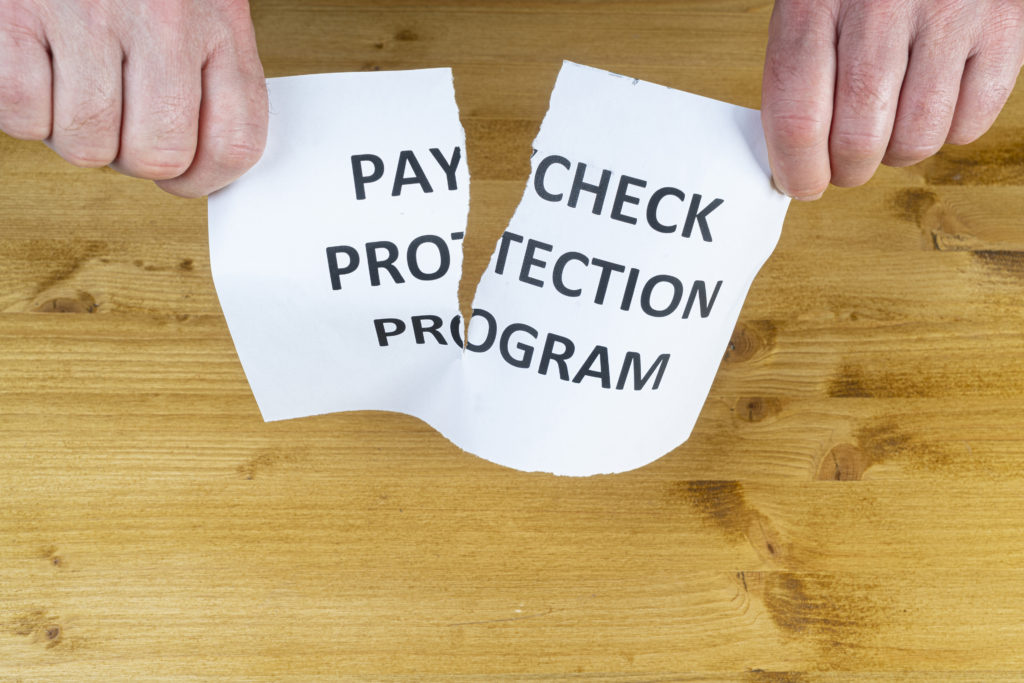California Protects Warehouse Employees Against Unfair Labor Practices

The on-going feud between state governments and big tech companies intensified on September 22, 2021 when California Governor Gavin Newsom signed California Assembly Bill 701 (A.B. 701), making California the first state to impose regulations on companies that require warehouse distribution center employees to meet unfair productivity quotas. A.B. 701 - the Warehouse Distribution Centers Bill - amends the California Labor Code to include new provisions taking aim at companies like Amazon that implement unfair labor practices that exploit employees in order to fulfill delivery orders. A.B. 701 also prevents job seekers from being discriminated against when applying for or pursuing a different job if the job applicant filed to receive worker’s comp benefits during prior employment.
What is A.B. 701?
Generally, the purpose of California Assembly Bill 701 (A.B. 701) is to protect warehouse distribution center employees against impending job loss for failing to meet employer established productivity quotas. The author of the new law, California Assemblywoman Lorena Gonzalez states, “worker’s aren’t machines. We’re not going to allow a corporation that puts profits over worker’s bodies to set labor standards back decades just for same-day delivery.” The new law will protect both current and former workers employed at a warehouse distribution center.
What is a productivity quota?
A.B. 701 defines quota as a work standard under which an employee is assigned or required to perform at the specified productivity speed or perform a quantified number of tasks, or to handle or produce a quantified amount of material, within a defined time period and under which the employee may suffer an adverse employment action if they fail to complete the performance standard.
Essentially, a quota is created by the employer or company of which the employee is responsible to meet. The quota consists of the number of tasks the employee is expected to complete within a certain amount of time. The problem arises when the quota is unfair, yet employees are still expected to perform tasks to complete the quota, and if the employee cannot do so, then the employee may experience an adverse employment action.
What is an adverse employment action?
In California, an adverse employment action is viewed as any type of retaliatory action taken by an employer that is reasonably likely to have a negative effect on an employee’s job performance, opportunities for a promotion, or ability to seek employment elsewhere. The most common examples of an adverse employment action are job loss or termination, reduced wages, and demotion to a lower employment position or job title.
What changes will happen because of A.B. 701?
Currently, companies like Amazon are not held accountable for providing employees with adequate notice of their productivity quotas and the adverse employment actions that may occur for failing to meet those quotas. A.B. 701 requires companies to provide more transparency to warehouse distribution center employees. For example, the bill provides greater protections to warehouse distribution center employees in the following ways:
- Employers must provide adequate notice to every existing and new employee in writing describing each quota the employee is responsible to meet;
- Employers must provide notice to all employees in writing of any adverse employment actions that may result from failing to meet a quota;
- Employees will not be required to meet a quota that violates the employee’s right to meal and rest or break time, including using the bathroom;
- Employers are prohibited from taking any adverse employment action against an employee for not meeting a quota if the quota violates the employee’s right to meal and rest or break time, including using the bathroom;
- Employees must receive productive time credit towards any quota for actions taken by the employee to comply with California’s health and safety laws for the workplace;
- Employees may receive productive time credit towards any quota during meals and rest or break time if the employee is required to be on call during those times;
- Current and former employees have the right to request a written description of each quota and a copy of the most recent 90 days of the employee’s performance towards meeting the quota if the employee believes the company created a quota that violates the employee’s right to meals and rest or break time.
Another key component of the new law is that employees will have the ability to file a lawsuit for injunctive relief to obtain court ordered compliance with the law against employers and companies. Employees that are successful in the lawsuit for injunctive relief may be awarded suspension of the unfair quota, the court may reverse an unlawful termination of the employee for not meeting a quota that violated the employee’s labor rights, the employer and company may be ordered to cover the employee’s costs and attorney’s fees for filing the lawsuit. Each case will depend on the specific facts, so it is important to consult with an experienced labor law attorney to assess the specifics of your case.
A.B. 701 is scheduled to take effect in California on January 1, 2022.
Free Consultation
Srourian Law Firm, with locations in Los Angeles, Westwood, Woodland Hills, and Orange County is experienced in all aspects of employment law including Warehouse Employee related health and safety violations in the workplace, and have aggressively represented employees in Los Angeles, Hollywood, Santa Monica, Orange, Irvine, Anaheim, Santa Ana, Newport Beach, Costa Mesa, Fullerton, Tustin, Mission Viejo, San Clemente, Garden Grove, Laguna Niguel, Brea, Fountain Valley, Aliso Viejo, Yorba Linda, Westminster, Laguna Hills, Cypress, and La Habra.
If you or someone you know suffered employment violations, you may have certain employee rights under state and federal law, and may be entitled to compensation as a part of a class action lawsuit. Please contact us to speak with one of our lawyers for a free consultation.
FAQs on PPP Fraud

Many businesses have benefited from PPP loans during closures due to COVID-19. PPP funds, however, are supposed to benefit employees by providing financial assistance to businesses to maintain payroll, employee benefits and other business expenses. If you are aware of any PPP fraud by your employer, you have an obligation to report the fraud. Moreover, you are protected from any retaliation for reporting any violations.
Q: What is PPP fraud?
A: PPP (Paycheck Protection Program) fraud includes any misuse of funds from the Small Business Administration (SBA) in response to COVID-19. In an effort to provide financial assistance to businesses during the pandemic. Any business that received PPP money, must use the money for specific business expenses such as payroll, employee benefits, rent, interest on mortgages, and utilities. The intent of the PPP was to ensure that businesses could continue to pay employees and cover necessary businesses expenses during mandatory closures.
Unfortunately, there is a growing concern that businesses have been violating the requirements of PPP. This fraudulent behavior has resulted in the money not being used to pay employees as intended. Examples of PPP fraud include falsifying information on PPP applications, providing inaccurate data regarding employees, and misdirecting PPP funds away from payroll.
Q: What happens if I learn my company committed PPP fraud?
A; If you learn that your company has committed PPP fraud, you must report the fraud. However, there are steps you can take to protect your rights. First, you should review any paperwork you signed as a condition of employment. This will include any employment contract, documents signed during orientation and training, as well as any employee handbooks. These documents often include a company policy that employees will act honestly and report fraud. In other words, you could be violating a company policy by not reporting the fraud. Second, you should consult with an experienced labor law attorney who can not only advise you of the legal issues, but more importantly, will protect your rights.
A: Can my company fire me for reporting PPP fraud?
A: No. If you report PPP fraud, you are protected by federal and state laws as a whistleblower. Any punitive action taken by an employer against an employee for reporting PPP fraud (or any violation of a law or regulation) is specifically protected under laws against whistleblower retaliation. In addition to federal protection, California has very strong labor laws that protect whistleblowers. Specifically, California Labor Code section 1102,5 (in part) states:
An employer, or any person acting on behalf of the employer, shall not retaliate against an employee for disclosing information, or because the employer believes that the employee disclosed or may disclose information.
The broad protection under California law not only protects whistleblowers from retaliation, but also protects an employee who are believed to be a whistleblower by the company. Other forms of retaliation that are prohibited by law include threats, demotions, reduced hours or pay, blacklisting or denying a promotion that is merited.
Q: Can I sue my company if they retaliate against me for reporting PPP fraud?
A: Yes. If you report PPP fraud by your company, and are the victim of retaliation because of the report, you have a right to sue under federal and state law. Moreover, the company can also face significant civil penalties. An experienced labor law attorney can review your case and help you decide what course of action is best. More importantly, consulting with an attorney will protect your rights as an employee and possible whistleblower.
FREE CONSULTATION
Srourian Law Firm, with locations in Los Angeles, Westwood, Woodland Hills, and Orange County is experienced in all aspects of employment law including PPP fraud and whistleblower retaliation, and have aggressively represented employees in Los Angeles, Hollywood, Santa Monica, Orange, Irvine, Anaheim, Santa Ana, Newport Beach, Costa Mesa, Fullerton, Tustin, Mission Viejo, San Clemente, Garden Grove, Laguna Niguel, Brea, Fountain Valley, Aliso Viejo, Yorba Linda, Westminster, Laguna Hills, Cypress, and La Habra.
If you or someone you know suffered employment violations due to PPP fraud or whistleblower retaliation, you may have certain employee rights under state and federal law, and may be entitled to compensation as a part of the class action lawsuit. Please contact us to speak with one of our lawyers for a free consultation.


